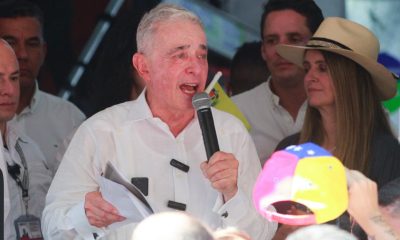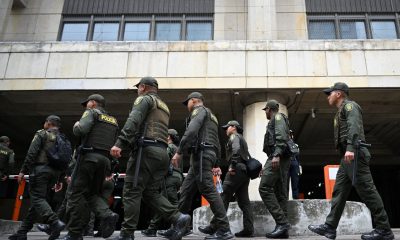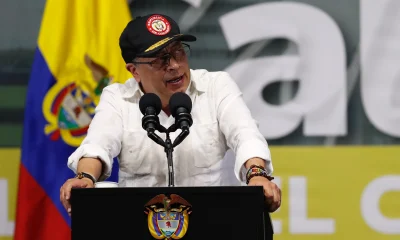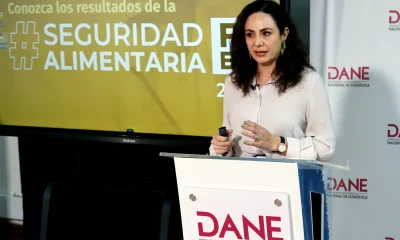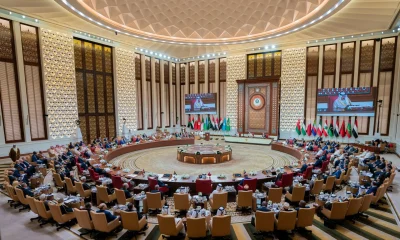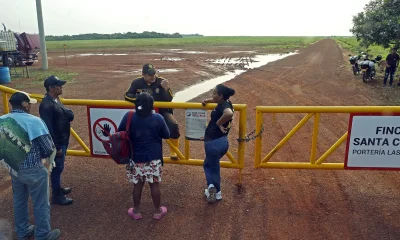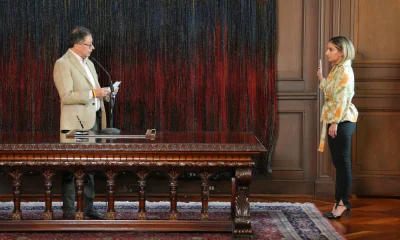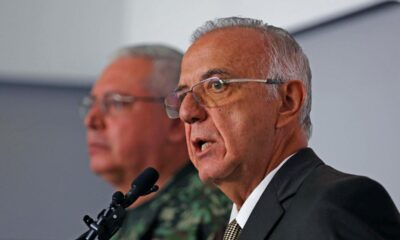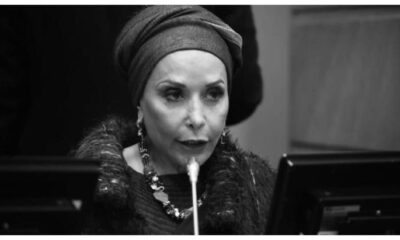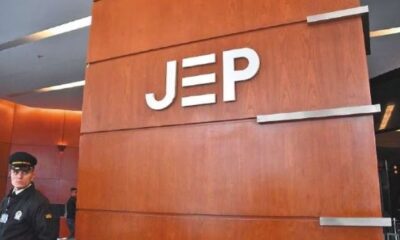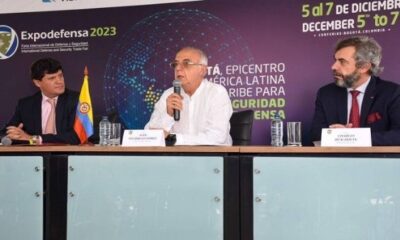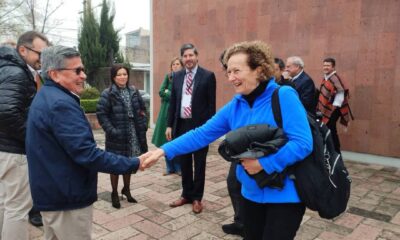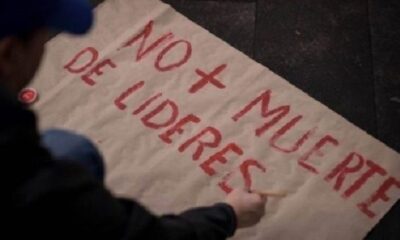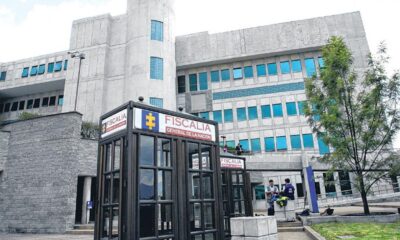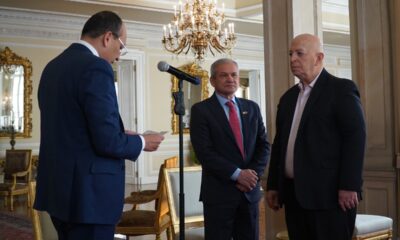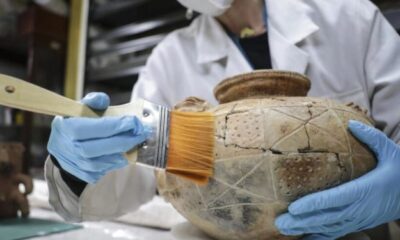International
Colombia urges Israeli ambassador to leave the country
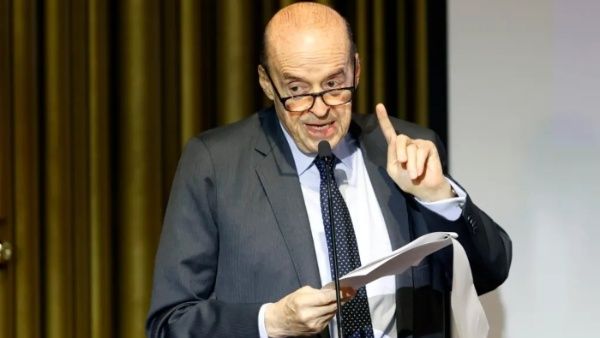
October 17 |
Colombian Foreign Minister Alvaro Leyva on Monday rejected Israel’s statements about President Gustavo Petro, who recently described Tel Aviv’s siege against Palestinians in the Gaza Strip as genocide.
Leyva, urged this Monday the ambassador of Israel, Gali Dagan, to leave the country, in the midst of a crisis in the bilateral relationship as a result of President Petro’s stance.
“Gustavo Petro, president of Colombia, is respected. Author of the doctrine of Total Peace for his country and the world, he seeks a definitive solution for Israel and Palestine based on a historical vision,” the foreign minister posted on his X account, before Twitter.
In turn, the head of Colombian diplomacy affirmed that this vision “is neither destroyed with insolence nor intellectual filth” while assuring that the Israelis are wrong.
“The history of universal diplomacy will consign as a milestone the senseless ludicrousness of the ambassador of Israel in Colombia towards the president of the Republic. Shame on him. At least apologize and leave. Intelligence is confronted with intelligence. There are States at stake”, he added.
Last Sunday, the Colombian head of state indicated that he would suspend relations with Israel if necessary, but that the South American nation did not support genocide.
In turn, the head of Colombian diplomacy affirmed that this vision “is not destroyed with insolence or intellectual filth” while assuring that the Israelis are mistaken.
“The history of universal diplomacy will record as a milestone the senseless ludicrousness of the ambassador of Israel in Colombia towards the president of the Republic. Shame on him. At least apologize and leave. Intelligence is confronted with intelligence. There are States at stake”, he added.
Last Sunday, the Colombian head of state indicated that he would suspend relations with Israel if necessary, but that the South American nation did not support genocide.
Likewise, Petro’s statements came after Israel’s Foreign Ministry spokesman, Lior Haiat, announced Tel Aviv’s decision to stop security exports to Colombia.
According to local media, a large part of the Colombian Armed Forces’ arsenal comes from Israel. Examples include galil rifles, Kfir aircraft, drones and Spike missiles, among others.
International
Police investigate deaths of Rob Reiner and wife as apparent homicide
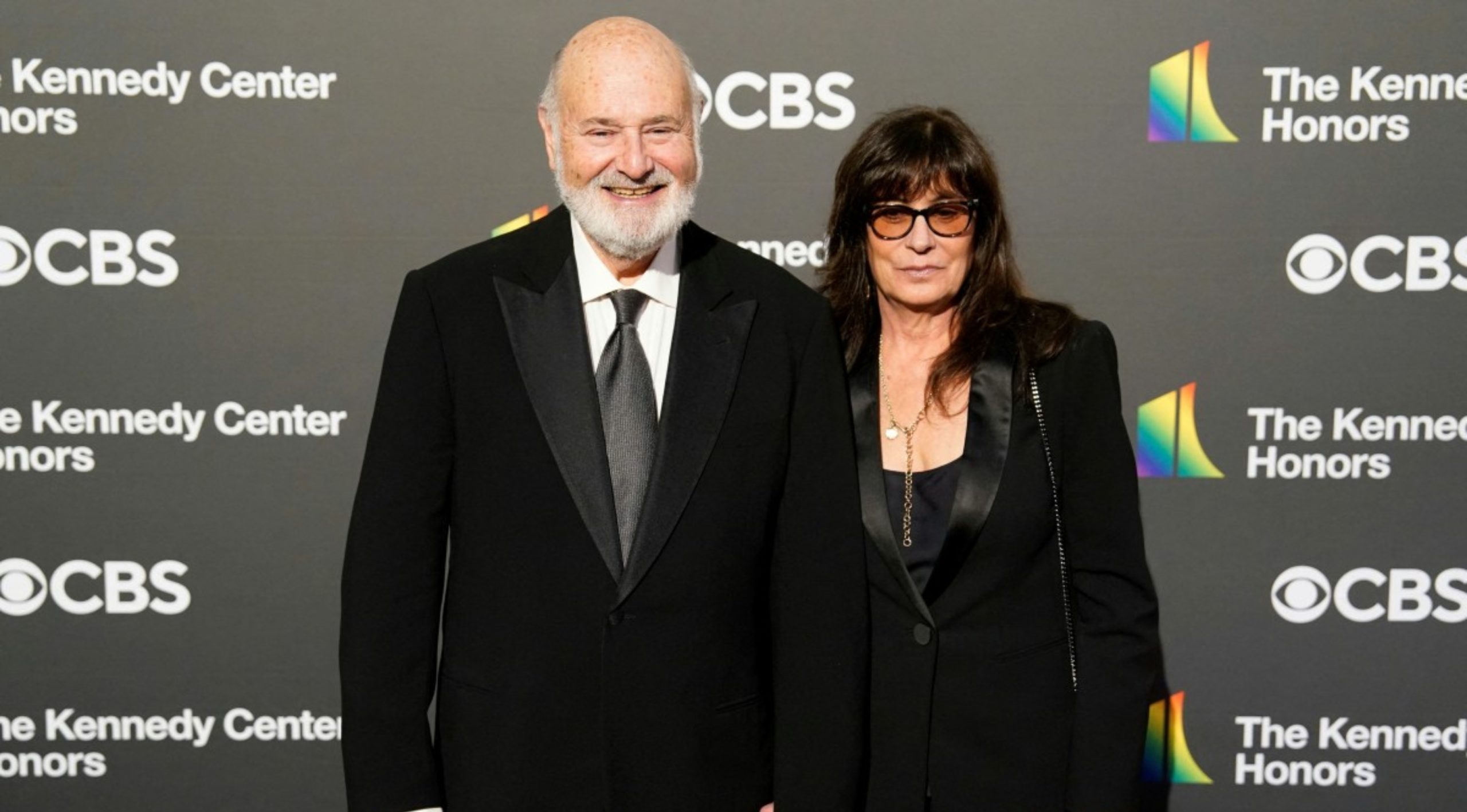
The Los Angeles Police Department (LAPD) is investigating the deaths of Hollywood actor and filmmaker Rob Reinerand his wife as an “apparent homicide,” amid a wave of tributes to the director of classics such as When Harry Met Sally.
According to U.S. media reports on Sunday, Rob Reiner and Michele Singer Reiner were found dead at their Los Angeles mansion with what appeared to be stab wounds.
Several political figures shared messages of condolence following the reported deaths of the director of A Few Good Menand his wife.
While the LAPD did not officially confirm the identities of the victims, it stated that homicide detectives were dispatched to the Reiner residence.
“At this time, no additional details are available and the investigation into an apparent homicide is ongoing,” the Los Angeles Police Department said in a statement posted on social media.
LAPD Deputy Chief Alan Hamilton told reporters that no arrests have been made and that no individuals are currently being questioned as suspects.
“I’m not going to confirm whether anyone is being questioned at this moment or not. We are going to try to speak with as many family members as we can,” Hamilton said.
CNN reported that a family spokesperson confirmed the deaths of Reiner and his wife.
California Governor Gavin Newsom, former U.S. President Barack Obama, and former Vice President Kamala Harrisissued statements expressing their condolences.
International
U.S. and Mexico Reach Deal to Address Water Deficit Under 1944 Treaty

The United States and Mexico have reached an agreement to comply with current water obligations affecting U.S. farmers and ranchers and for Mexico to cover its water deficit to Texas under the 1944 Water Treaty, the U.S. Department of Agriculture said in a statement.
The department уточified that the agreement applies to both the current cycle and the water deficit from the previous cycle.
On Monday, U.S. President Donald Trump accused Mexico of failing to comply with the water-sharing treaty between the two countries, which requires the United States to deliver 1.85 billion cubic meters of water from the Colorado River, while Mexico must supply 432 million cubic meters from the Rio Grande.
Mexico is behind on its commitments. According to Washington, the country has accumulated a deficit of more than one billion cubic meters of water over the past five years.
“This violation is severely harming our beautiful crops and our livestock in Texas,” Trump wrote on Monday.
The Department of Agriculture said on Friday that Mexico had agreed to supply 250 million cubic meters of water starting next week and to work toward closing the shortfall.
Agriculture Secretary Brooke Rollins, quoted in the statement, said Mexico delivered more water in a single year than it had over the previous four years combined.
Trump has said that if Mexico continues to fall short of its obligations, the United States reserves the right to impose 5% tariffs on imported Mexican products.
Mexico’s Deputy Foreign Minister for North America, Roberto Velasco, said that a severe drought in 2022 and 2023prevented the country from meeting its commitments.
International
Several people shot in attack on Brown University campus

Several people were shot on Saturday in an attack on the campus of Brown University, in the northeastern United States, local police reported.
“Shelter in place and avoid the area until further notice,” the Providence Police Department urged in a post on X. Brown University is located in Providence, the capital of the state of Rhode Island.
U.S. President Donald Trump said on his social media platform Truth Social that he had been briefed on the situation and that the FBI was on the scene.
At 5:52 p.m. local time (11:52 p.m. GMT), Brown University said the situation was still “ongoing” and instructed students to remain sheltered until further notice.
After initially stating that the suspect had been taken into custody, Trump later posted a second message clarifying that local police had walked back that information. “The suspect has NOT been apprehended,” the U.S. president said.
-

 Central America4 days ago
Central America4 days agoHonduras election crisis deepens as CNE president denounces intimidation attempts
-

 International4 days ago
International4 days agoCuba battles out-of-control dengue and chikungunya epidemic as death toll rises to 44
-

 International4 days ago
International4 days agoColombia says it would not reject Maduro asylum request as regional tensions escalate
-

 International20 hours ago
International20 hours agoPolice investigate deaths of Rob Reiner and wife as apparent homicide
-

 International3 days ago
International3 days agoSeveral people shot in attack on Brown University campus
-

 Central America1 day ago
Central America1 day agoPanama seizes over three tons of drugs hidden in Caribbean port container
-

 Central America20 hours ago
Central America20 hours agoOAS urges swift recount in Honduras as election results remain uncertain
-

 International4 days ago
International4 days agoEcuador on track for record violence as homicides hit highest level in Latin America again
-

 International2 days ago
International2 days agoU.S. and Mexico Reach Deal to Address Water Deficit Under 1944 Treaty

































